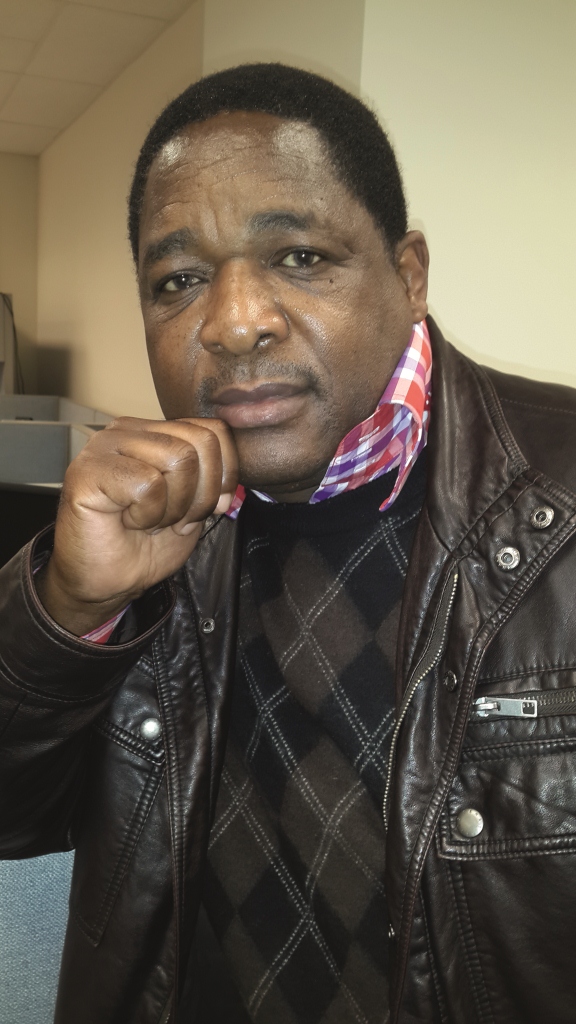It was nine days of hell that Ray Choto will never forget. Live electric wires were pushed into his genitals; it was so excruciating that he snapped the chain of his handcuffs. With his editor, Mark Chavunduka, he was stripped and blindfolded at a military base in Cranborne, a suburb of Harare. Their captors shoved their heads in drums of water. They were forced to do push-ups in the rain, in between beatings, and afterwards their torturers kicked them through the wet grass to clean off the blood.
It all began because of a news story the now late Chavunduka, founding editor of The Standard, Zimbabwe’s independent Sunday newspaper, and Choto, the newspaper’s former chief investigative reporter, wrote in January, 1999 that 23 soldiers, including seven officers, were under arrest for inciting their comrades to overthrow president Robert Mugabe. The authorities wanted to know who leaked the story. The two young African men suffered at the hands of their own people but never revealed their sources.
“As a journalist, my responsibility is to protect my sources. Even if it meant that I was going to be thrown into jail or killed. I was ready for it in defense of ethical journalism,” says Choto, 15 years on.
“The torture was very barbaric. I was handcuffed, put in leg irons, and tortured by way of electric shocks all over my body. They also hit me with wooden planks, clenched fists …”
Their crime? According to Choto, it was allegedly contravening a section of the Law and Order Maintenance Act. They challenged the constitutional validity of the controversial colonial law and the Zimbabwe Supreme Court declared the provision null and void and the case fell away.
Both were flown to London for psychological and physical treatment. In May 2000, Choto received further treatment in Australia.
Contrary to reports that he fled Zimbabwe, Choto explains that he went to the United States (US) on September 6, 2000 to take up the prestigious John S. Knight Fellowship for professional journalists at Stanford University in California. It was during his first year at the university that Mugabe’s government introduced strict laws that made it difficult for journalists to work.
The program appointed Choto as a senior fellow, extending his stay in the US for another year. This came at a time when Zimbabwe’s government news publications labeled Choto an enemy of the state. He cites an article that detailed a press conference, held by the military and the police, in which they warned the independent media that they were ready to treat those that write negatively about Zimbabwe the same way they treated Choto and Chavunduka.
Choto went home on the first of day of 2002 and planned to be in Zimbabwe for eight days. A senior source in the military agreed to secretly meet him at a hotel in Harare. Choto had called him to tell him that he was in the country and asked if he had time to meet for a drink. The military source sounded hesitant, but agreed. They communicated in code in case the phone was bugged. When they met, the military source asked Choto why he came back in dangerous times and told him to leave the country.
Choto got on a plane and left. He then telephoned family and friends to ask whether he should return. All, including his mother, said no. Choto, now 13 years in the US, says he will not go home as long as the ruling party, Zanu-PF, is in power.
“The loss of my mother in May 2010 was, and remains, a thorn in my heart. Unfortunately, I couldn’t go to Zimbabwe to see her laid to rest.”
Now a senior editor at the Voice of America (VOA) in the Africa Division in Washington D.C., Choto says that it is challenging to work on stories from a distance.
As Mugabe begins his seventh term, Choto clings on to hope.
“The solution lies in the hands of the people of Africa. They have to elect democratic leaders and reject undemocratic leaders who come to power through chicanery.”
You have to listen to a man who shed blood for his beliefs. FL
